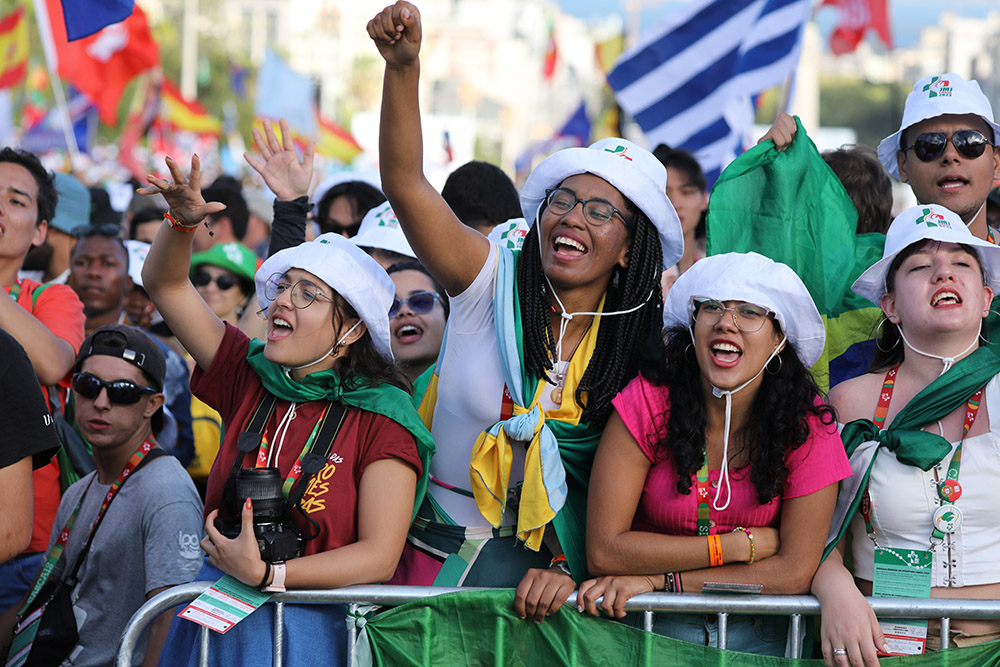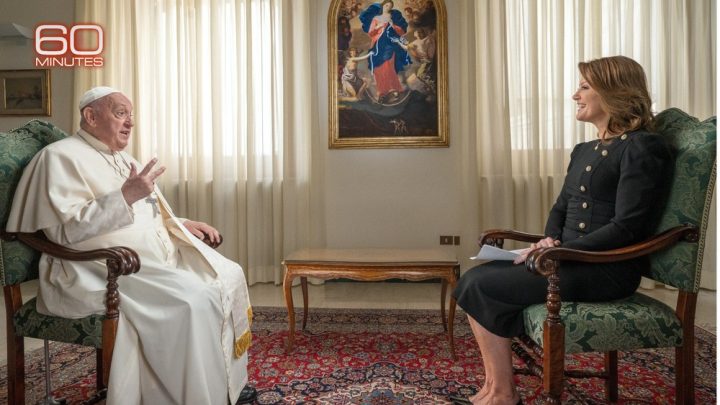
Describing World Youth Day as « a parable of synodality, » a Vatican official told reporters in the Portuguese capital Aug. 2 that young people’s desires to be « protagonists » in their own faith journeys sowed the seeds for the Vatican’s landmark, three-year global consultation of Catholics.
« I have learned synodality from and with young people, » Xavière Missionary Sr. Nathalie Becquart, an undersecretary of the Vatican’s Synod of Bishops office, said during a press conference. She emphasized the synodal dimensions of World Youth Day, the weeklong Catholic festival that draws hundreds of thousands of young people from around the world.
« World Youth Day is about synodality in action, » she said. « With young people, the first thing they want is to be listened to. What we experience here, what we see, is really this dream of the synodal church as the people of God on the way, all together journeying as missionary pilgrims, led by the Holy Spirit. »
Becquart later told NCR that the 2018 Synod of Bishops on young people crystallized the concept of synodality, which is the central theme in the 2021-24 Synod of Bishops that will meet this October in Rome and again next year.
Described by some observers as the largest consultative exercise in human history, Pope Francis has made the synod on synodality a key initiative in his decadelong papacy. In 2015, the pope said synodality is what « God expects of the church of the third millennium. »
Becquart said, « If you look at the final document of the synod on youth, you can see that the main fruit, the main outcome of that synod, was the understanding that we need to be a synodal church, and it was expressed with this term of missionary synodality. »
Pedro Paulo Weizenmann, a young Brazilian Catholic who volunteers with the Vatican’s synod office, told NCR after the press conference that World Youth Day is a « concrete example of a synodal church in practice. »
« Because here we are all together, » Weizenmann said. « Young, old, laypeople, religious, priests, bishops, the pope, journeying together, in the same sense, on the same journey, having conversations, singing, confessions, having profound experiences in those conversations. »
Young people « reawakened the synodality of the church, » said Becquart. She described synodality as « a constitutive dimension of the church from the beginning, » but one that was never fully developed and became deemphasized over time.
A synodal church is one, Becquart said, where « everybody has something to give, and everybody has something to learn, » and where « even the youngest, the poor and the voiceless » can contribute « because the Holy Spirit can speak to anybody. »
Francis has sought to use the synod’s three-year global effort at listening and dialogue to model a church where all the baptized — lay and clergy — journey together. In that church, bishops still govern their dioceses but they consult the faithful and listen to their lived experiences on a regular basis.
As reflected in the 2018 synod’s final document, young Catholics in particular want to be active participants in the life of the church rather than being passive receivers of doctrine.
« During the synod on young people, we understood that the only way to transmit the faith today is with the style of World Youth Day, this style of synodality, » said Becquart, who acknowledged that most young Catholics will not use the term « synodality » to describe their hopes for the church.
Said Becquart, « They don’t express it like this, but in fact they dream of a church as one of brothers and sisters in Christ, of a welcoming church that is open. They dream of a church as the body of Christ, guiding them to follow Christ. They dream of a church that can change the world, that can offer a better world. »



